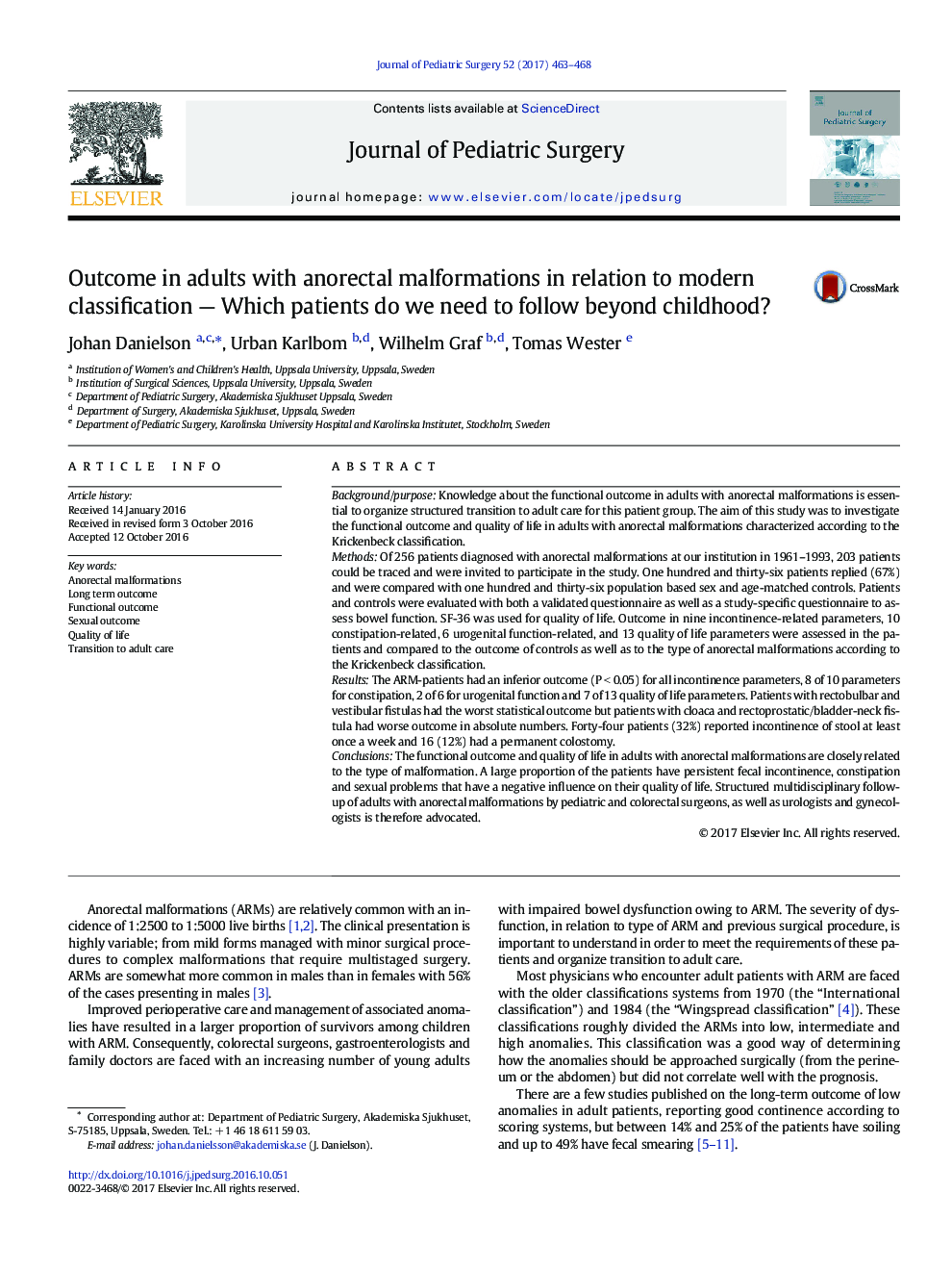| Article ID | Journal | Published Year | Pages | File Type |
|---|---|---|---|---|
| 5718179 | Journal of Pediatric Surgery | 2017 | 6 Pages |
Background/purposeKnowledge about the functional outcome in adults with anorectal malformations is essential to organize structured transition to adult care for this patient group. The aim of this study was to investigate the functional outcome and quality of life in adults with anorectal malformations characterized according to the Krickenbeck classification.MethodsOf 256 patients diagnosed with anorectal malformations at our institution in 1961-1993, 203 patients could be traced and were invited to participate in the study. One hundred and thirty-six patients replied (67%) and were compared with one hundred and thirty-six population based sex and age-matched controls. Patients and controls were evaluated with both a validated questionnaire as well as a study-specific questionnaire to assess bowel function. SF-36 was used for quality of life. Outcome in nine incontinence-related parameters, 10 constipation-related, 6 urogenital function-related, and 13 quality of life parameters were assessed in the patients and compared to the outcome of controls as well as to the type of anorectal malformations according to the Krickenbeck classification.ResultsThe ARM-patients had an inferior outcome (PÂ <Â 0.05) for all incontinence parameters, 8 of 10 parameters for constipation, 2 of 6 for urogenital function and 7 of 13 quality of life parameters. Patients with rectobulbar and vestibular fistulas had the worst statistical outcome but patients with cloaca and rectoprostatic/bladder-neck fistula had worse outcome in absolute numbers. Forty-four patients (32%) reported incontinence of stool at least once a week and 16 (12%) had a permanent colostomy.ConclusionsThe functional outcome and quality of life in adults with anorectal malformations are closely related to the type of malformation. A large proportion of the patients have persistent fecal incontinence, constipation and sexual problems that have a negative influence on their quality of life. Structured multidisciplinary follow-up of adults with anorectal malformations by pediatric and colorectal surgeons, as well as urologists and gynecologists is therefore advocated.
